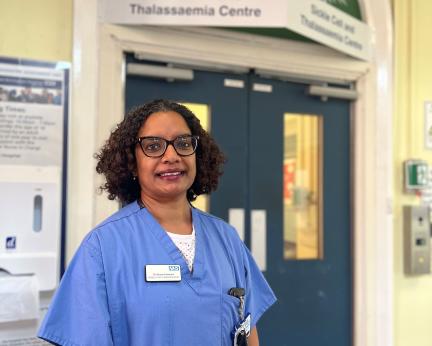If you’re interested in both scientific understanding and improving patient care, choosing a career in haematology can be incredibly rewarding as it combines both. Haematology is also a varied career path with many different areas to specialise in. For example, you may be interested in haemato-oncology, transfusion medicine, coagulation disorders, non-malignant haematology, red cell disorders, or areas that focus predominantly on research.
To be a haematologist, you would need to be a medical doctor and then take further training in medicine and then haematology. But you don’t have to be a doctor to work in haematology. Many different disciplines support patients with blood disorders. For example, biomedical scientists play a vital role in diagnostics.
The top three skills someone would need to succeed in this field are: having a scientific background or strong interest in science, have analytical and communication skills and being able to work as part of a multidisciplinary team.
If I were to describe my job in three words, I would choose: precision, empathy, and collaboration.





